Frontal sinusitis represents inflammation of the frontal sinus or ethmoid sinuses. This is a serious infection that can be acute or chronic, and if not treated adequately and on time may cause serious complications among which the most severe one is meningitis.
It is essential to check the course of the disease and monitor patients. In case frontal sinusitis does not improve within a day or two after the onset of treatment patients may need to undergo surgical draining of the frontal sinus which is done during the frontal sinus trephination procedure.
It is estimated that chronic sinusitis affects 13% of people in the United States. The condition leads to improper drainage of sinuses and consequent recurrent infections.
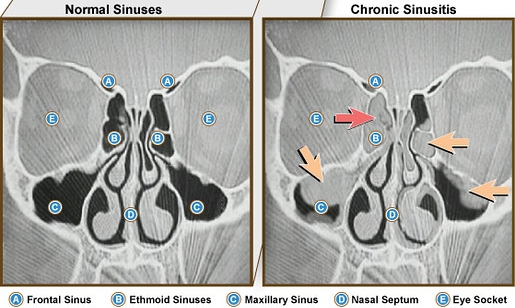
Clinical Characteristics of Chronic Frontal Sinusitis
Patients commonly suffer from nasal stuffiness, increased nasal discharge, and facial pain, which is localized to the forehead and especially between the eyes. Pain can be persistent and pulsating.
The condition is also associated with chronic cough (that gets worse at night) and loss of smell. Mouth breathing and snoring are two more characteristics of chronic frontal sinusitis. And finally, in babies, the condition leads to increased irritability and frequent ear infections.
Diagnosing Chronic Frontal Sinusitis
The most significant thing when it comes to diagnosing chronic sinusitis is a patient's medical history. Special attention is paid to recurrent sinus infections, symptoms, and signs patients are complaining about, environmental reactions, allergies, and response to medications.
A good and well-experienced doctor will make a differential diagnosis and after several more tests and exams, he/she will be able to exclude other conditions apart from chronic sinusitis. The person will undergo a computerized tomography (CT scan) of the sinuses and may prior that undergo an X-ray scan. However, better insight into the conditions is achieved with a CT scan.
Treatment for Chronic Frontal Sinusitis
There is a variety of treatment modalities that can be combined in patients suffering from chronic frontal sinusitis, as well as inflammation of any other sinuses.
Antihistamines are highly effective in patients suffering from allergies. Such individuals are also supposed to avoid exposure to allergens as much as possible. Congestion of the nasal passages is relieved with decongestants and may be alleviated by saltwater rinses. Some patients are prescribed topical nasal corticosteroids. Activation of chronic sinusitis requires antibiotics.
Patients who do not respond well to medicamentous treatment may need to be treated surgically. The goal of this invasive treatment is to reestablish proper drainage of mucus from sinuses, and this way prevent the recurrence of inflammation and deal with all the symptoms that have bothered patients for a long period.
- Adults with chronic rhinosinusitis prospectively enrolled in a multicenter study who demonstrated frontal sinusitis on computed tomography were divided into 2 groups: (1) endoscopic sinus surgery (ESS) incorporating ethmoidectomy, but excluding frontal sinusotomy; and (2) ESS incorporating frontal sinusotomy.
- The primary outcome was improvement in 22-item Sino-Nasal Outcome Test (SNOT-22) scores. Secondary outcomes included endoscopic scores and use of corticosteroids and antibiotics.
- A total of 196 cases undergoing frontal sinusotomy and 30 cases treated with ethmoidectomy without frontal sinusotomy were analyzed and were comparable demographically. The prevalence of nasal polyps, previous ESS, asthma, and aspirin intolerance was more common in the frontal sinusotomy group (p
- Preoperative endoscopy and computed tomography scores were higher in the frontal sinusotomy group (p ? 0.001). Postoperatively, both groups showed comparable SNOT-22 scores with worse endoscopy scores in the frontal sinusotomy group (p = 0.038).
- Postoperative improvement in SNOT-22 total and subdomain scores was comparable between groups. Nasal endoscopy scores improved to a greater degree in the frontal sinusotomy group (p = 0.023). Duration of postoperative topical steroid use was higher in the frontal sinusotomy group (p = 0.007). Revision surgery was needed in 2.6% of frontal sinusotomy patients and 0% of patients without frontal sinusotomy.




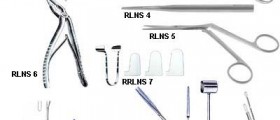






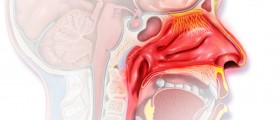

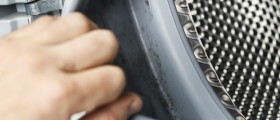

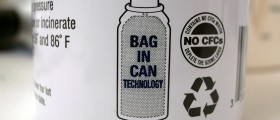
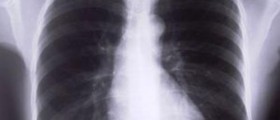
Your thoughts on this
Loading...